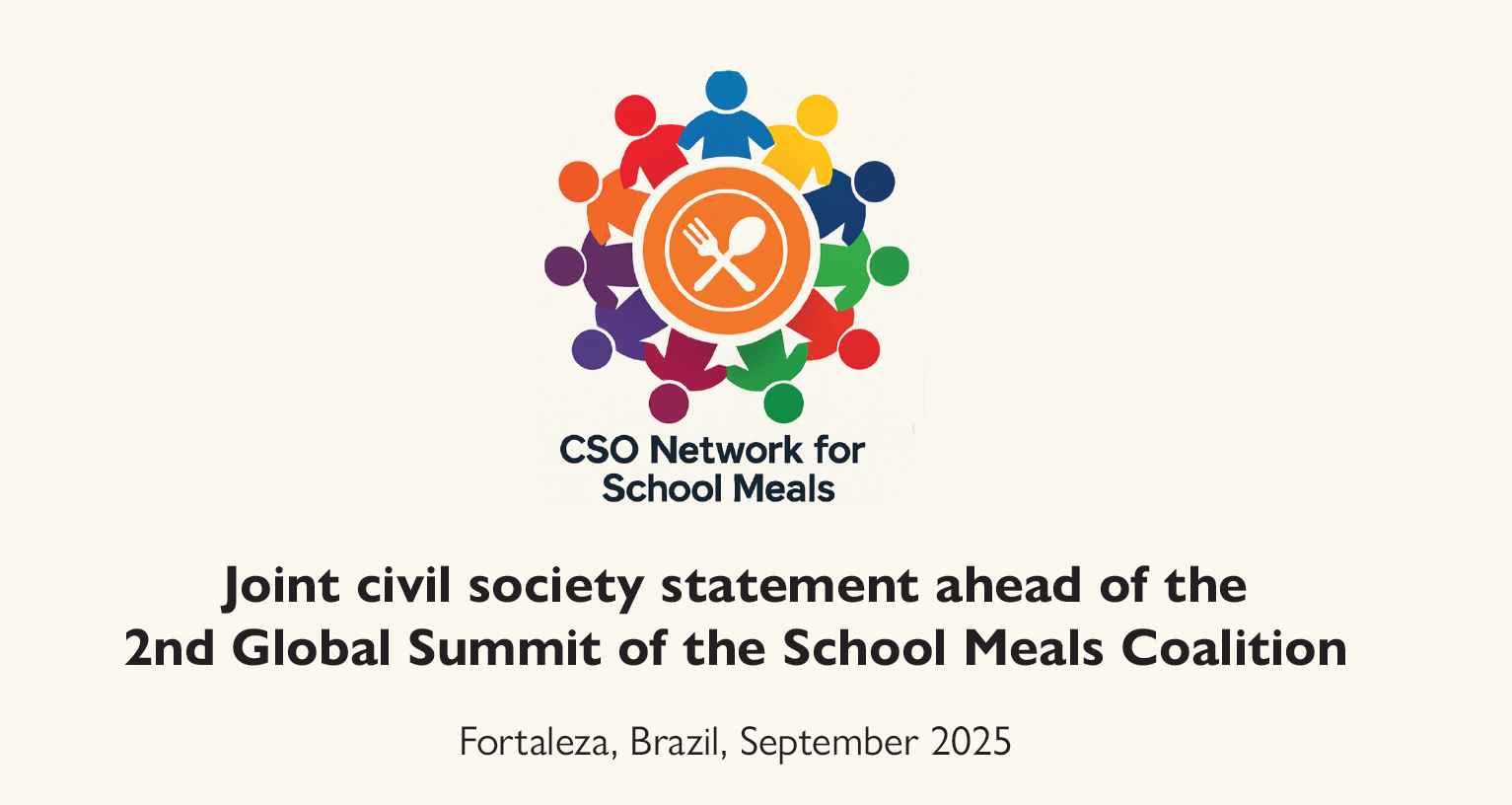
Joint Statement: Civil Society Calls for Urgent Action to Ensure Every Child Receives a Healthy School Meal by 2030
GCNF is proud to support the School Meals Coalition’s (SMC) Civil Society Organisation (CSO) Network, in amplifying the role of civil society in advancing school meal programs. As a steering committee member of the SMC CSO Network for School Meals, we are pleased to share below the joint statement and accompanying press release, issued ahead of the 2nd Global Summit of the School Meals Coalition.
________________
PRESS RELEASE
Joint Statement: Civil Society Calls for Urgent Action to Ensure Every Child Receives a Healthy School Meal by 2030
Fortaleza, Brazil – September 18, 2025 – As world leaders and stakeholders prepare for the 2nd Global Summit of the School Meals Coalition in Fortaleza, Brazil, the Civil Society Organisation (CSO) Network for School Meals is issuing a unified call to action: every child deserves a nutritious, locally sourced school meal each school day by 2030. Two years after launching a global Call to Action, CSOs are reaffirming their commitment, showcasing tangible progress, and outlining how governments can strengthen and expand school meal programmes worldwide.
The case for action is compelling. CSOs across the globe are delivering meals, from single schools to programmes reaching millions of children, demonstrating that effective, sustainable school feeding is achievable in any context. Beyond service delivery, CSOs are partnering with governments, driving innovation through climate-smart agriculture, clean cooking technologies, digital monitoring, and holistic programmes that integrate nutrition with education, health, and community development.
“We agree that feeding children is everyone’s business, that governments have the mandate, and that civil society has the proximity, creativity, and trust to make school meals work day after day, child by child,” said Arlene Mitchell, Executive Director of Global Child Nutrition Foundation (GCNF). “And we know that evidence shows that inclusive school meal programmes not only improve attendance and learning outcomes but also strengthen local economies, empower women entrepreneurs, and enhance food security.”
CSOs are urging governments to:
- Engage early and co-design policies: Developed in partnership with CSOs reflect community realities and ensure long-term success.
- Share responsibility across sectors: Collaboration between governments, civil society, the private sector, and communities is key to sustainable impact.
- Use evidence to drive policy: CSOs bring data, research, and grassroots insights to inform effective decision-making.
- Recognise CSOs as system builders: Civil society expertise strengthens national frameworks and resilient systems.
- Invest in Community-Led Innovation: From culturally appropriate menus to climate-smart agriculture, local solutions can be scaled to benefit every child.
With decades of experience, trusted local relationships, and proven models, the CSO Network transforms school meal programmes into engines of child development, community resilience, and economic inclusion. “We share in the conviction that this work should be rooted in evidence, driven by innovation, and guided by the belief that no child can or should learn on an empty stomach,” Arlene Mitchell added.
About the CSO Network for School Meals
The CSO Network for School Meals is a coalition of over 100 civil society organisations committed to ensuring every child has access to a healthy, nutritious school meal. The Network provides direct implementation, technical expertise, and advocacy to strengthen school meal systems worldwide.

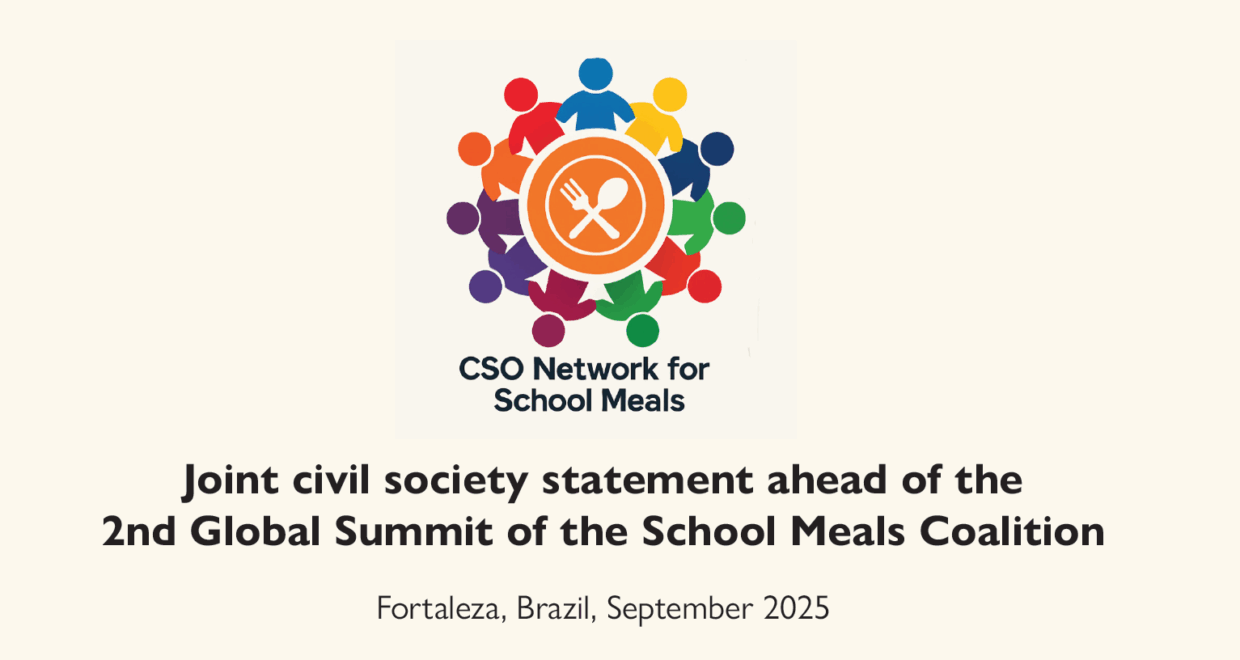

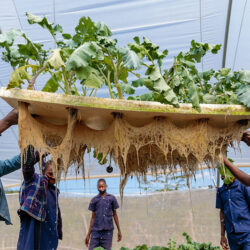

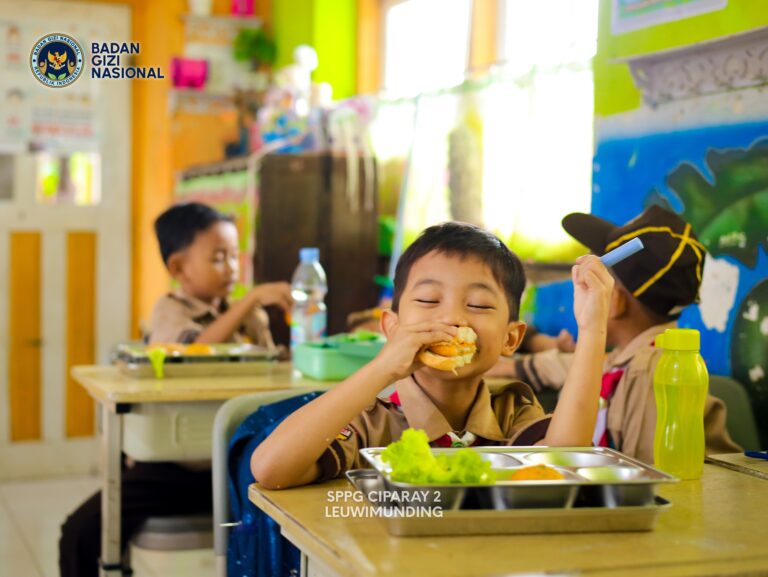

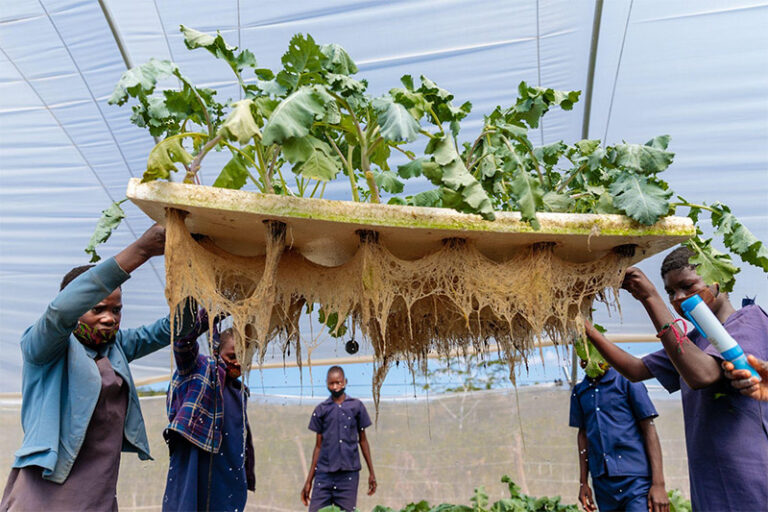
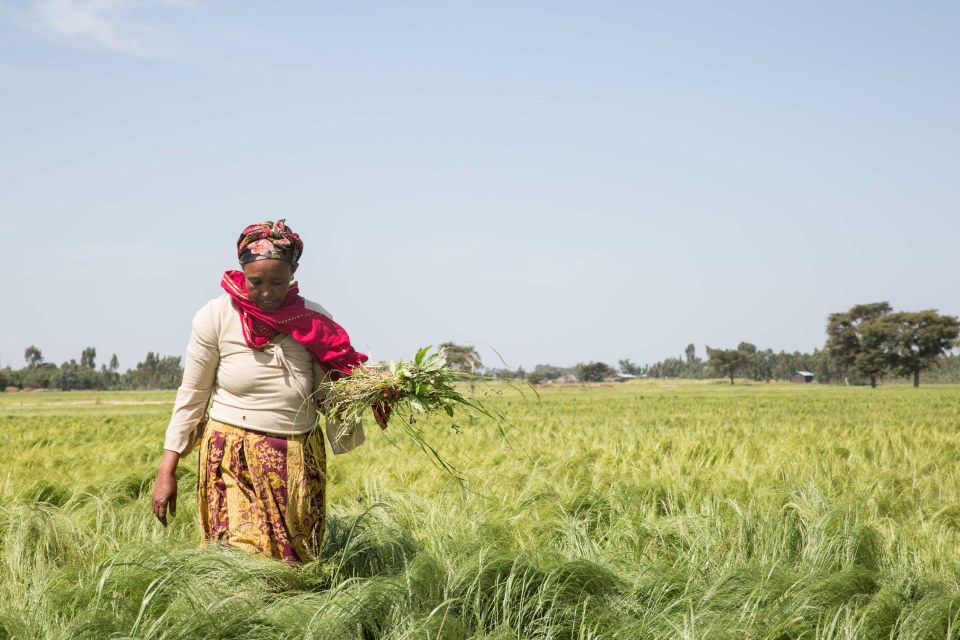
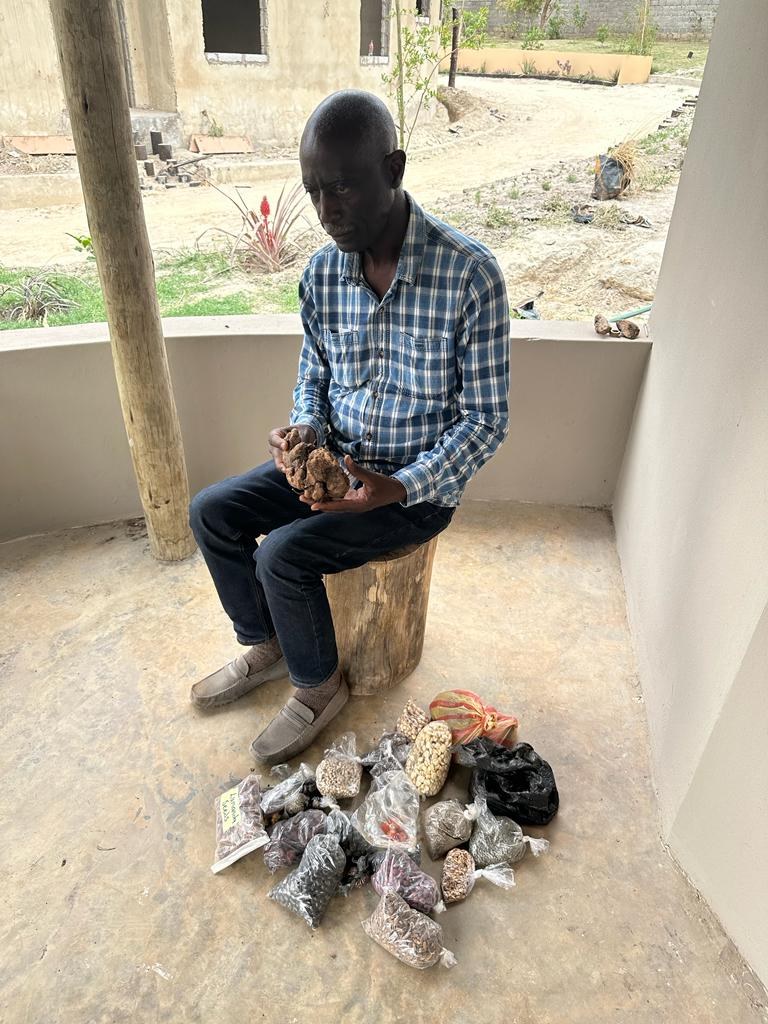
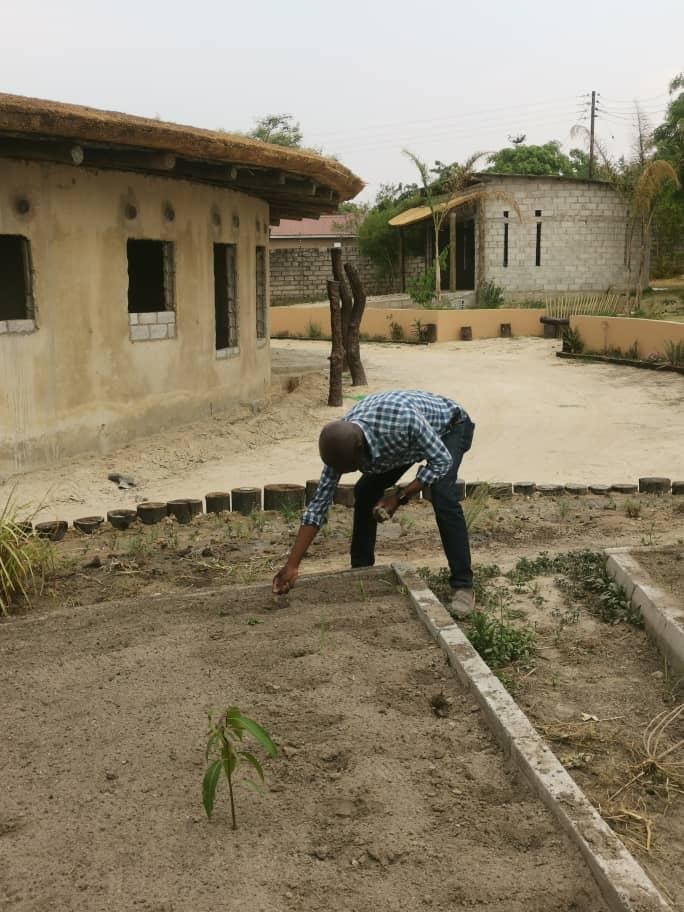
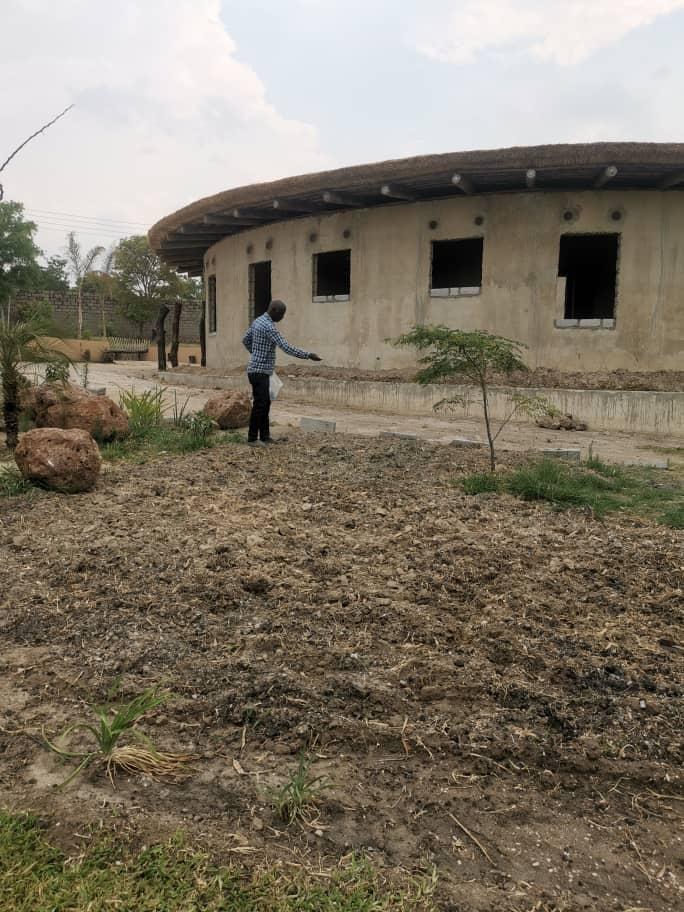
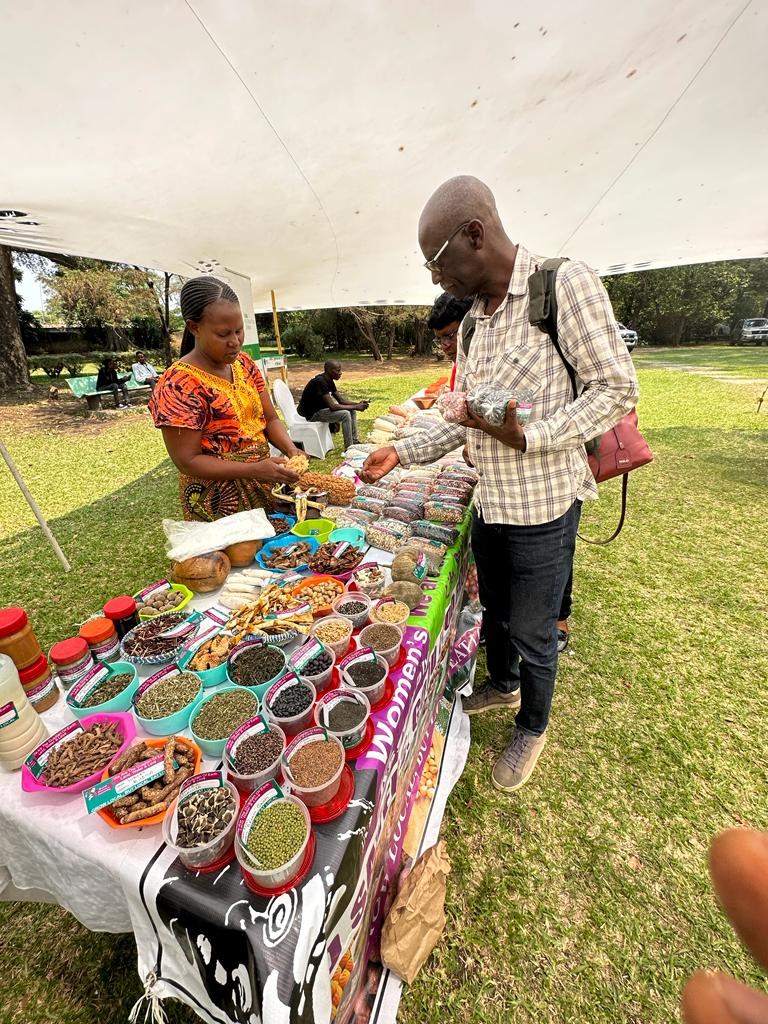
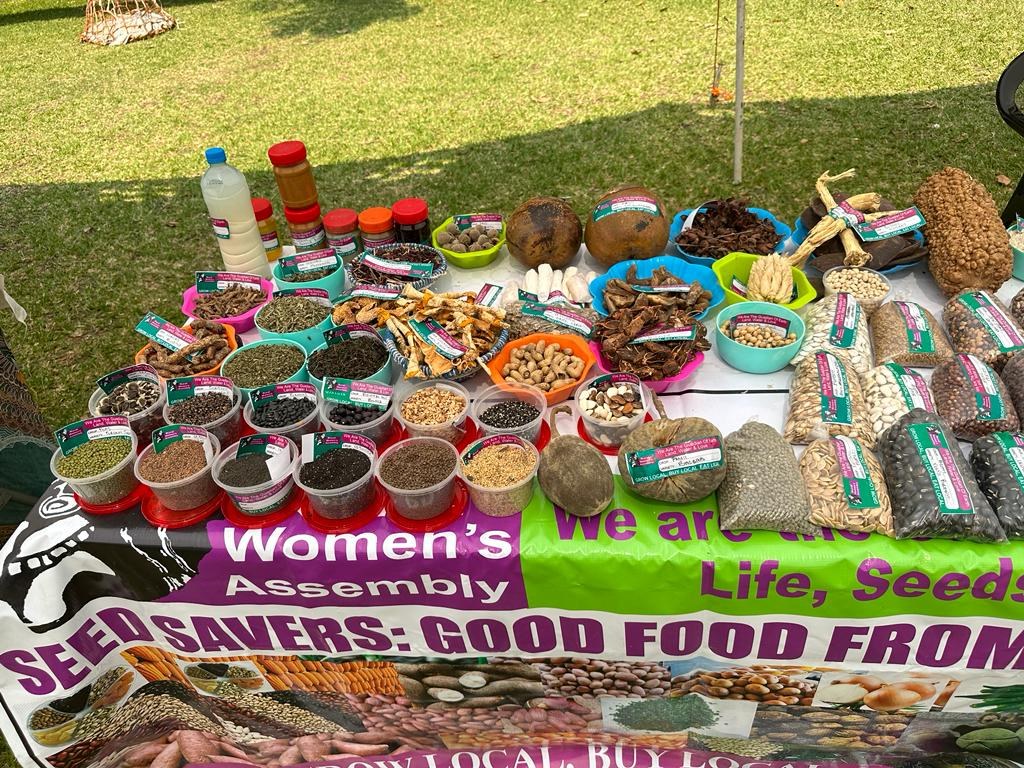
No comment yet, add your voice below!